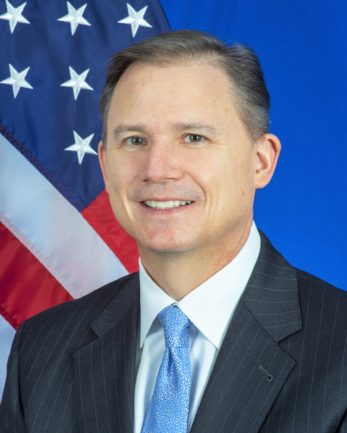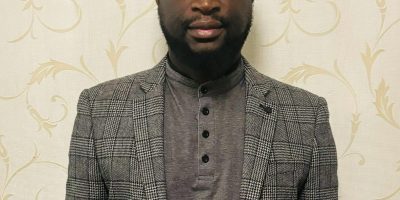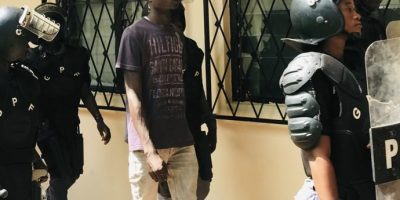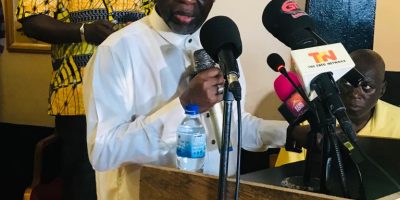 Banjul, The Gambia – The United States is committed to supporting The Gambia’s efforts to combat COVID-19 and keep Gambians throughout the Smiling Coast safe. The U.S. Government is working closely with the government of The Gambia, civil society, and community leaders to combat the pandemic. This assistance builds on long term U.S. Government support, which totals approximately $3 million (GMD 150 Million) this year.
Banjul, The Gambia – The United States is committed to supporting The Gambia’s efforts to combat COVID-19 and keep Gambians throughout the Smiling Coast safe. The U.S. Government is working closely with the government of The Gambia, civil society, and community leaders to combat the pandemic. This assistance builds on long term U.S. Government support, which totals approximately $3 million (GMD 150 Million) this year.
The United States Agency for International Development (USAID) committed $310,000 (GMD15.5 Million) to assist The Gambia in its efforts to slow the COVID-19 outbreak and promote citizen accountability in executing the local response. These additional funds will raise public awareness and promote transparency around the COVID-19 response through television and radio broadcasts, a nationwide public awareness campaign on prevention, support to Follow the Money to track funds and program implementation related to COVID-19, and support to an online fact-checking platform to counter disinformation about COVID-19.
The U.S. Government is also partnering directly with communities to combat the disease.
Alumni from U.S. exchange programs are demonstrating the leadership skills they developed during their programs in helping sensitize their fellow Gambians to COVID-19. The State Department’s Alumni Rapid Response program is providing alumni with grants up to $10,000 to address the current COVID-19 outbreak and support future recovery efforts.
Recently, Prospect for Girls (PFG), a civil society organization founded by two Mandela Washington Fellowship Alumni, won a State Department Alumni Rapid Response Fund award to implement a COVID-19 Awareness Campaign. PFG’s project will raise awareness on the global pandemic and its long-term effects, especially on women’s health. The organization will use video tutorials to be aired using traditional and new media to reach people across the country.
The Balal Public Library in the rural town of Soma, was selected to receive an Alumni Rapid Response grant to implement the COVID-19 Community Awareness Project. The library is run by a 2016 Mandela Washington Fellow. This project is expected to reach 100,000 people through 28 weekly radio talk shows on COVID-19.
The United States is also working with local government. The U.S. Department of Defense, with help from USAID, is in the process of responding to a request from the Kanifing Municipal Council (KMC) for funding in the amount of $15,000 (GMD750, 000) to support the Council’s logistical, sanitization, and safety needs to effectively respond to COVID-19 in the Municipality.
Commenting on these developments, U.S. Ambassador to The Gambia, Richard Carl Paschall, said: “The United States stands shoulder to shoulder with the people and government of The Gambia as we face – together – the threat this virus poses. My team and I at the U.S. Embassy will continue our work to coordinate assistance with other donor countries and organizations, to support the truly heroic work being done by Gambians from Kartong to Koina. The United States has always stood by our partners through pandemics and crises. In the face of COVID-19, the American people are here to help.”
The United States is actively working with international partners and governments to combat the spread of the outbreak, reaffirming the centrality of diplomacy every step of the way. The U.S. government has briefed more than 100 officials from 70 nations, and is working with international public and private sector partners, including the WHO, to rapidly enhance our knowledge of the virus, inform out public health decisions, and accelerate the research and development of vaccines, therapeutics, and diagnostics. Since the outbreak of COVID-19, the U.S. government has committed over $1 billion in assistance to date. The United States is by far the most generous and reliable contributor to crisis response and humanitarian action through UNICEF, the World Food Program, and dozens of international organizations. In the 21st Century alone, the United States contributed more than $140 billion in global health assistance. USAID has invested more than $1 billion to help prevent, detect, and respond to endemic and emerging health threats, including diseases like COVID-19. Americans do not just provide aid through government means, though. We have helped populations affected by the COVID-19 pandemic around the world through the generosity of private businesses, nonprofit groups, faith-based organizations, and individuals with over $4.3 billion in donations and assistance globally.
The United States remains deeply concerned by information indicating some government regimes may have suppressed vital details about the outbreak and, given the implications to public health, continues to reiterate that all countries should transparently share information and cooperate with relevant international public health and aid organizations.
The United States will continue to lead in global health security to create a healthier world for all.




Ma sha Allah great and thanks for sharing